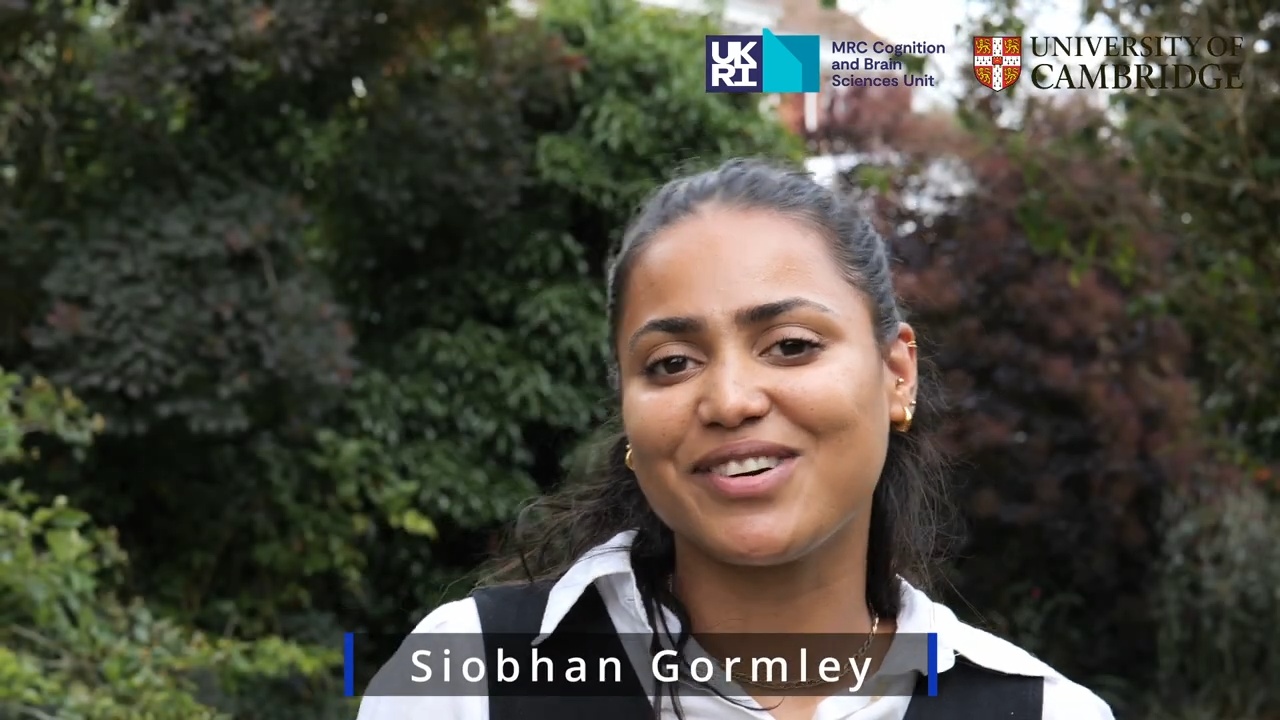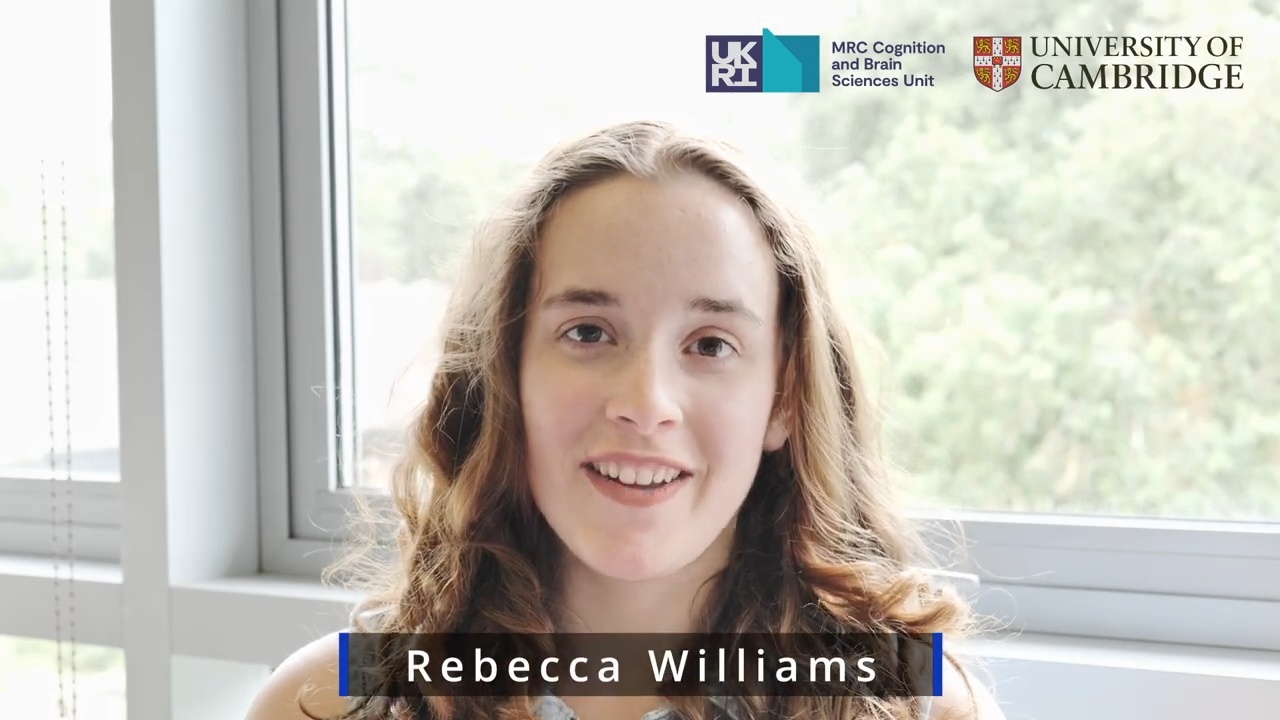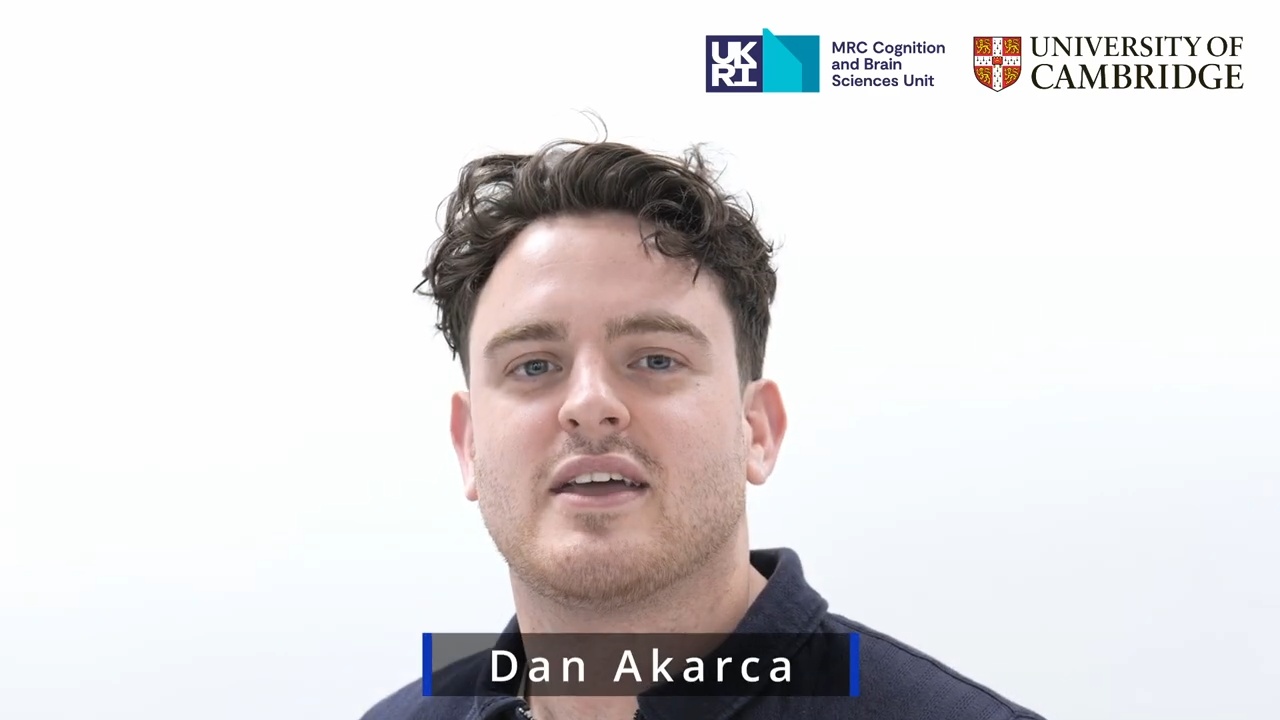About |
Timetable |
Objectives |
Requirements |
Fees |
Funding |
Training |
Dates |
Testimonials |
Apply |
About the MRC CBU taught Master’s in NeuroAI and Intelligent Systems
Explore the intersection of neuroscience and artificial intelligence at the University of Cambridge. Our new MPhil prepares future leaders to address fundamental questions about the nature of intelligence itself—both how to understand it in biological systems and how to build it in artificial ones. Through hands-on research and specialised training with world-class faculty, you will investigate the shared principles and theoretical foundations that underlie intelligence across biological and artificial systems.

The MPhil in NeuroAI and Intelligent Systems at Cambridge offers a unique opportunity to study at the forefront of the interdisciplinary field of NeuroAI, which has been enabled by rapid advances in methods for neuroscience experimentation and development of artificial intelligence. Drawing on Cambridge’s exceptional research strengths across neuroscience, computational modelling, and artificial intelligence, this program develops both theoretical foundations and practical capabilities needed to advance our understanding of intelligence across biological and artificial systems.
Through specialised coursework and an extended research project with leading experts, you’ll develop expertise in both neuroscience and AI methodologies. This interdisciplinary training equips you to identify and apply the fundamental principles that underlie neural computations and intelligent behaviour, positioning yourself for impactful careers in academia, industry, and beyond.
Programme Timetable
The MPhil in NeuroAI and Intelligent Systems is a 10-month, full-time course combining advanced taught content with an extended individual research project. Designed to address the widespread lack of hands-on research experience among prospective PhD applicants—particularly in interdisciplinary fields like NeuroAI—this programme delivers both theoretical knowledge and practical training, in alignment with recommendations from UKRI and Cambridge’s postgraduate widening participation initiatives.
The course structure is divided into three core components:
Section 1: Taught Component and Codebook Assessment (30%)
Students receive approximately 90 hours of instruction, frontloaded in Michaelmas Term and delivered by leading researchers. This includes 60 hours of bespoke NeuroAI content and up to 30 hours of selected cross-course modules in cognitive neuroscience and neuroimaging. Assessment includes a 5,000-word technical essay, a reproducible coding workbook, and a viva to assess the integration of theory and implementation.
Section 2: Literature Review (30%)
During the first four weeks of the course, students will begin exploring potential projects with supervisors. By mid-Michaelmas, they will formalise a plan for a research project aligned with an active host lab. A 5,000-word literature review, submitted in Lent Term, will provide the conceptual and methodological foundation for the project.
Section 3: Research Project (40%)
Running over 32 weeks, the project involves hands-on work within a Cambridge research group. Students will write a 5,000-word report covering aims, methods, results, and interpretation, with viva voce for borderline submissions.
This integrated timetable supports student development across research, coding, and scientific communication, preparing graduates for PhD study or careers in academia, tech, industry, and public engagement.
Programme Objectives
-
Build Interdisciplinary Foundations
Develop a strong conceptual understanding of artificial intelligence, neuroscience, and cognitive science, with a focus on their convergence in NeuroAI. -
Master Advanced Research and Technical Skills
Gain hands-on experience with cutting-edge AI methods—such as transformers and state-space models—and the specialized hardware that enables them, including AI accelerators, through practical coding and a 32-week supervised research project. -
Translate Theory into Application
Apply theoretical knowledge to real-world problems, designing and implementing novel computational models inspired by biological intelligence. -
Engage with Experts and Industry
Learn directly from world-leading academics and industry professionals through bespoke lectures, seminars, and technical workshops. -
Prepare for Diverse Career Pathways
Graduate with a highly sought-after interdisciplinary skillset, ready for PhD study or careers in AI, tech, neuroscience, policy, and beyond.
Admissions requirements
We require applicants to have at minimum a 2:1 degree (or international equivalent) by the start of the course. To apply, you must include a 300-word Personal Statement briefly outlining your interest in NeuroAI and Intelligent Systems and why you are applying to this course. This can include, if you want, a previous published study that inspires you, and why. You are welcome (but not required) to describe the area(s) of research that might interest you for a project during your MPhil.
Read more about postgraduate study at Cambridge here, and see Applicant Portal for further guidance on applying to Cambridge.
Fees
Home Student fee: £15,011 (2026-2027)
International Student fee: £41,480 (2026-2027 rate)
Funded places and bursaries
All applicants will be assessed for funding automatically if they are offered a place via University and College schemes. Some students also apply for funding in their country of origin – do feel free to get in touch to let us know if you have obtained any competitive scholarships. Commonwealth applicants can additionally apply for the Commonwealth Master’s Scholarships.
Postgraduate training at the MRC CBU
As a student on the MRC CBU’s new MPhil in NeuroAI and Intelligent Systems, you’ll join a dynamic, interdisciplinary community of postgraduate researchers at the forefront of neuroscience, artificial intelligence, and cognitive science. You’ll be part of a vibrant and inclusive cohort that encourages intellectual curiosity, collaboration, and innovation—training the next generation of researchers working at the intersection of biological and artificial systems. 
This course offers advanced, research-led training that blends theoretical understanding with hands-on technical experience. Students benefit from the MRC Cognition and Brain Sciences Unit’s world-class research infrastructure and deep expertise in brain imaging, neural modelling, machine learning, cognitive theory, and clinical neuroscience. Alongside bespoke teaching in cutting-edge AI and NeuroAI, you’ll work closely with expert supervisors on an extended research project, applying computational and experimental methods to real-world scientific questions.
Our graduates go on to thrive in academia, tech and AI industries, healthcare, policy, and beyond. Whether your ambitions lie in fundamental research or in applying intelligent systems to societal challenges, the MPhil in NeuroAI and Intelligent Systems provides the ideal platform.
To learn more about student life and support structures, please refer to the postgraduate student handbook.
Key Dates
 |
Application deadlines for October 2026 start:
|
Student testimonials

|

|

|
How do I apply?
Note that in addition to the standard University requirements, to be considered for this course you will need to include a 300-word Personal Statement briefly outlining your interest in NeuroAI and Intelligent Systems and why you are applying to this course. This can include, if you want, a previous published study that inspires you, and why.
Application portal
Events and Open Days?
Please visit the University’s Postgraduate Study Events and Open Days webpages for information about the virtual open days taking place in November 2024, as well as other events.
Any questions?
Email us – mphil@mrc-cbu.cam.ac.uk
Key funding links:
The University of Cambridge guidance on finding postgraduate funding
Cambridge UK Masters Scholarships
Commonwealth Master’s Scholarships (requires external application)

 MRC Cognition and Brain Sciences Unit
MRC Cognition and Brain Sciences Unit





